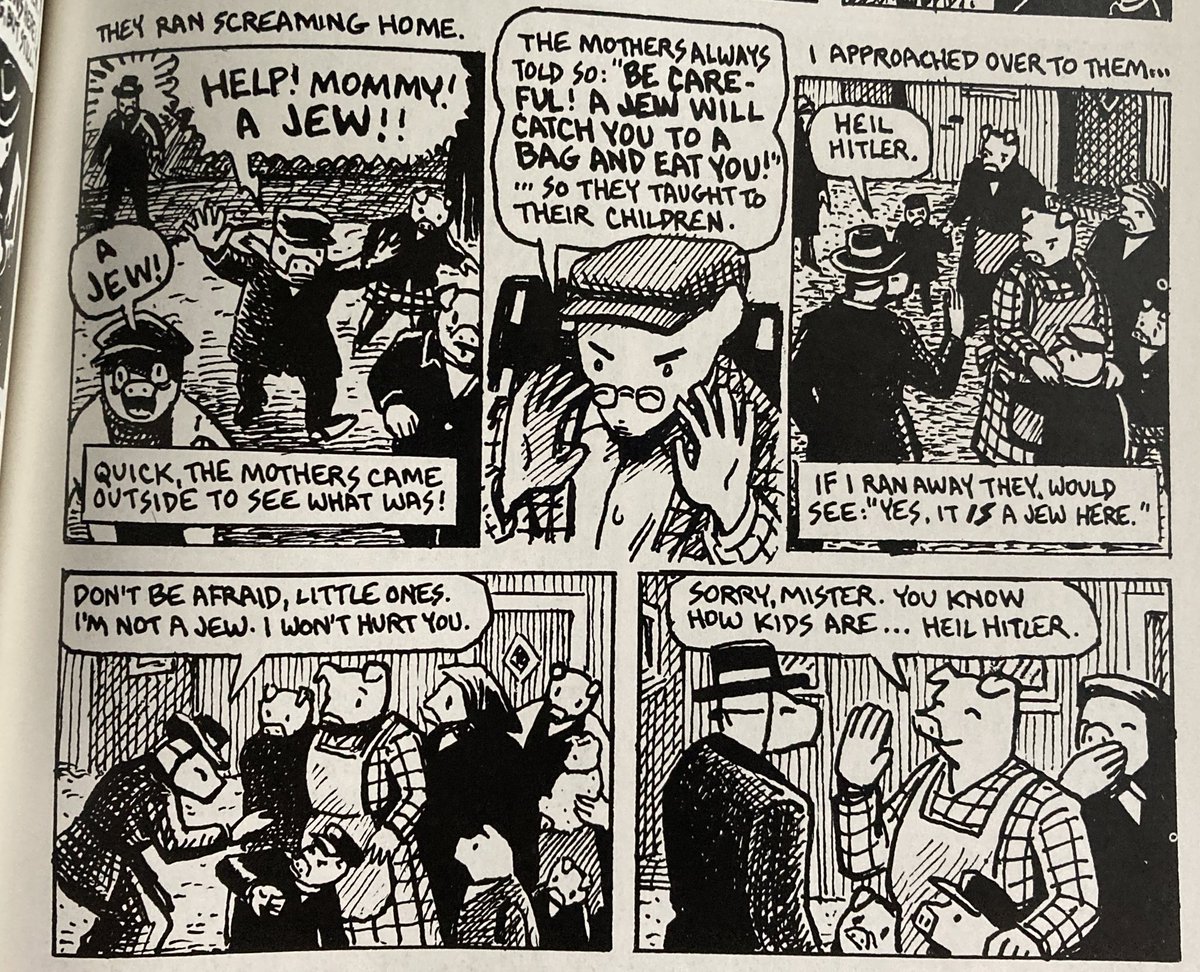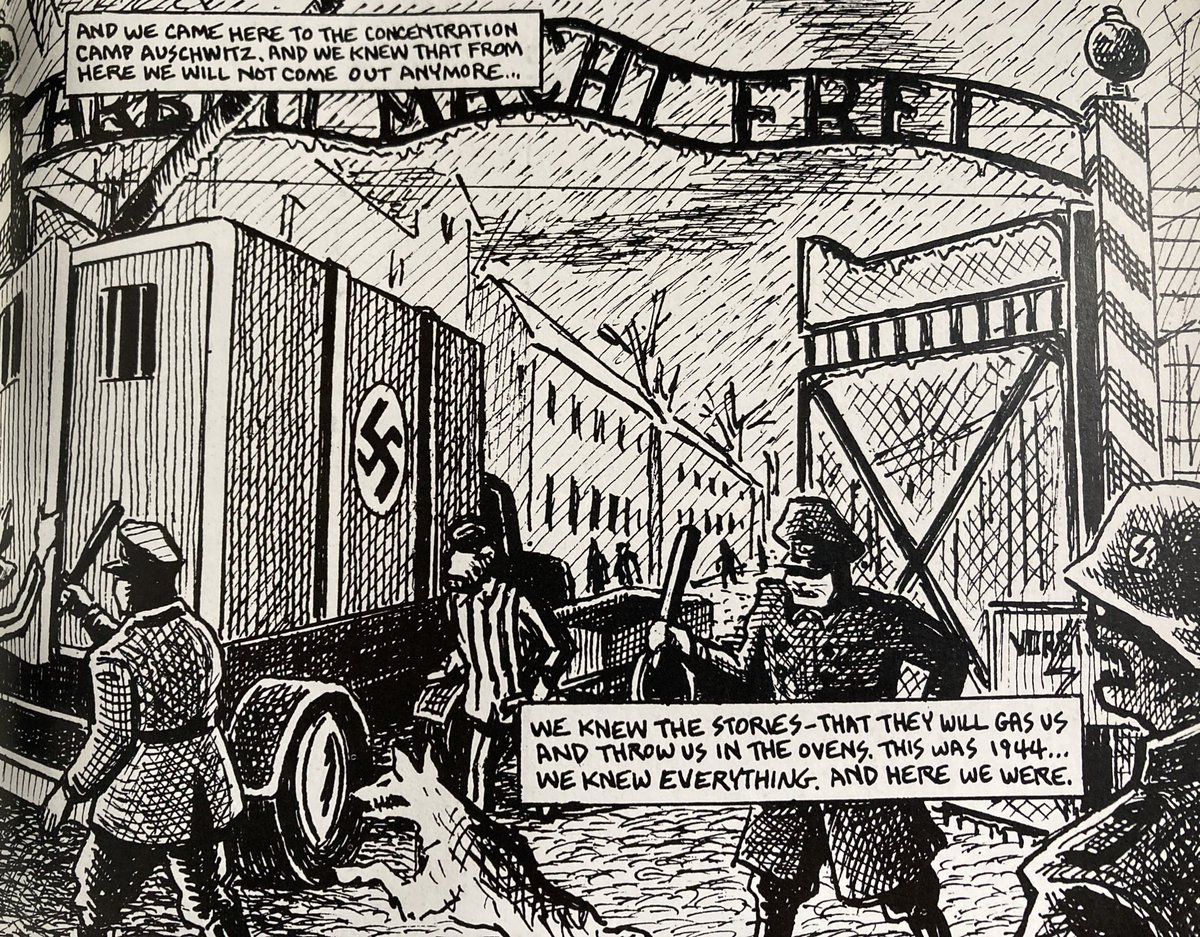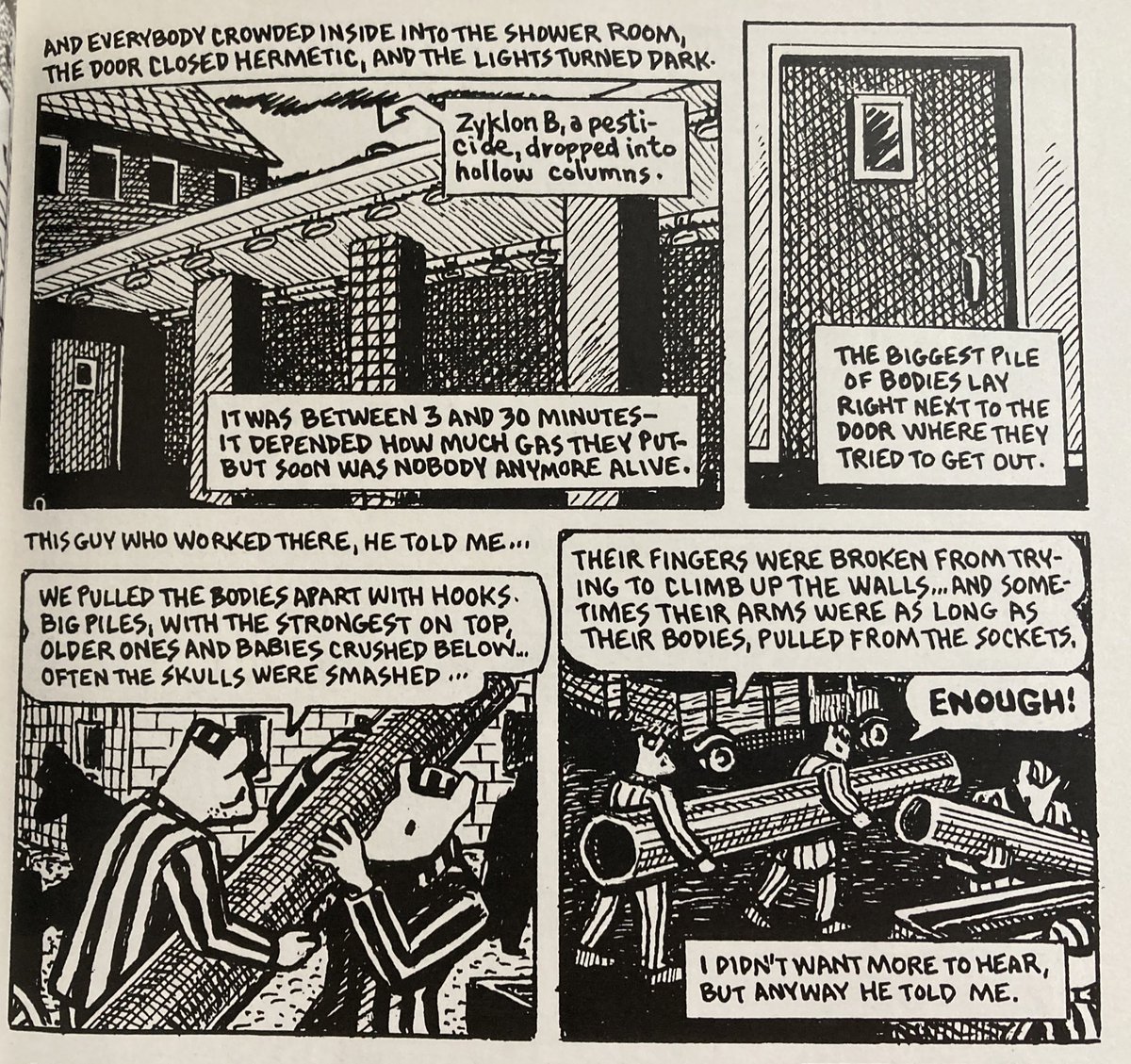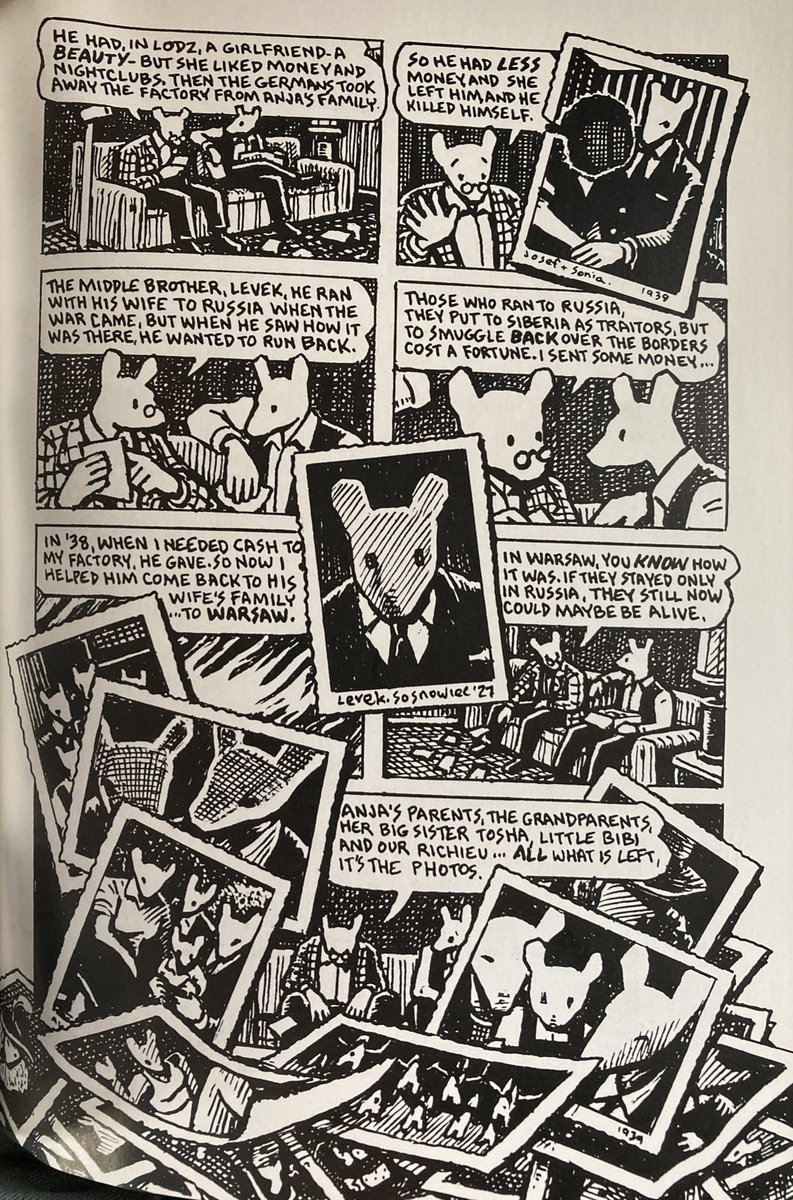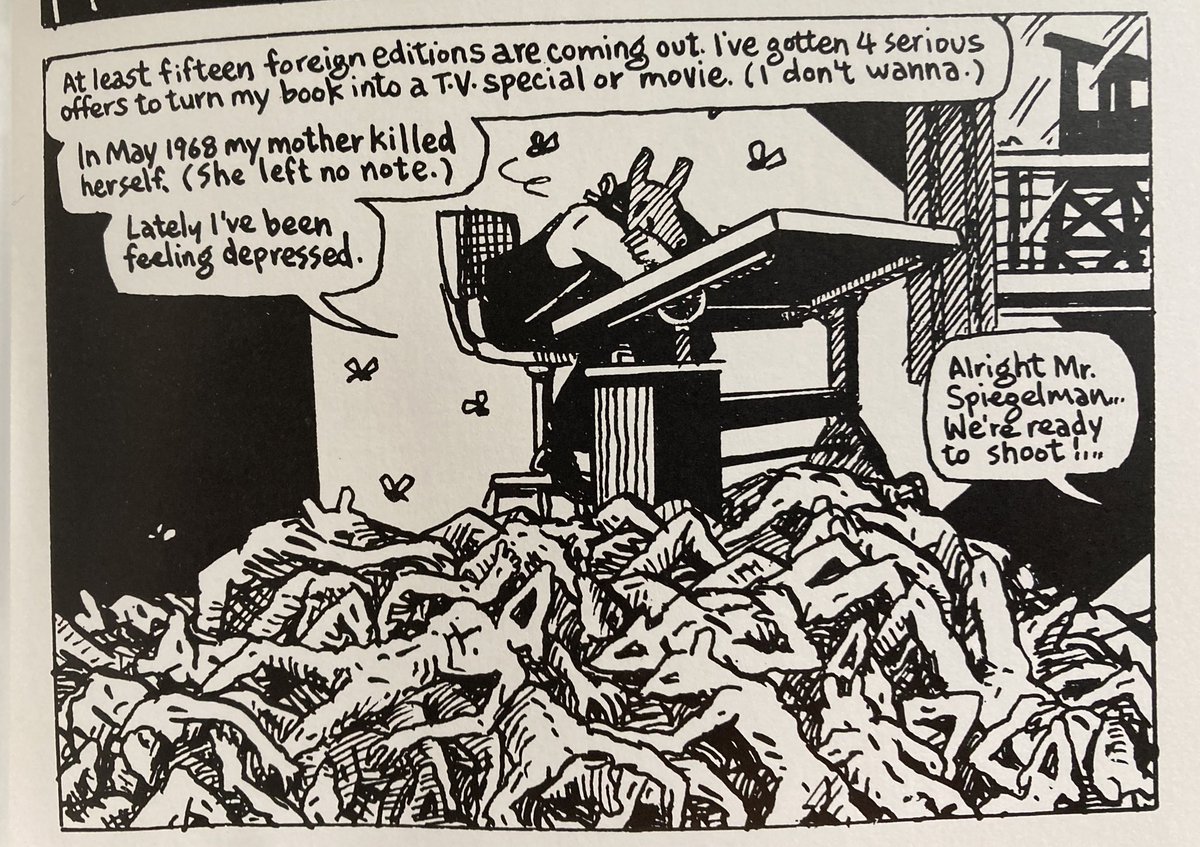There& #39;s a phenomenon I actually see extremely commonly when literature is used to teach history to middle school and high school students. Let& #39;s call it "pajamafication."
So a school district nixed Maus from their curriculum, to be replaced by something more "age-appropriate." IIRC they didn& #39;t cite a specific replacement title, but it will probably be something like John Boyne& #39;s "The Boy in the Striped Pajamas."
The Boy in the Striped Pajamas is tailor-made for classroom use. It& #39;s taught at countless schools and it& #39;s squeaky-clean of any of the parent-objectionable material you might find in Maus, Night, or any of the other first-person accounts of the Holocaust.
It& #39;s also a terrible way to teach the Holocaust.
I& #39;m not going to exhaustively enumerate the book& #39;s flaws--others have done so--but I& #39;ll summarize the points that are common to this phenomenon in various contexts.
I& #39;m not going to exhaustively enumerate the book& #39;s flaws--others have done so--but I& #39;ll summarize the points that are common to this phenomenon in various contexts.
First, obviously, the context shift. Maus, Night, et al are narrated by actual Jews who were in concentration camps. The Boy in the Striped Pajamas is narrated by a German boy. The Jewish perspective is completely eliminated.
Second, the emphasis on historical innocence. Bruno isn& #39;t antisemitic. He has no idea that anything bad is happening. He happily befriends a Jewish boy with absolutely no prejudice.
Thus we& #39;re reassured that you too, gentle reader, are innocent. You too would have have a childlike lack of prejudice and you too would be such a sweet summer child that you would have no idea the place next door is a death camp.
In Maus, by contrast, the children are not innocent. They are perpetrators of injustice just like adults.
Maus also smashes the claim that people just didn& #39;t know what was going on in the camps.
Third, nonspecificity. The Boy in the Striped Pajamas turns a specific historical atrocity into a parable about all forms of bigotry and injustice. I& #39;m sure Boyne thinks he& #39;s being very profound. But the actual effect is to blunt and erase the atrocity.
There& #39;s the too-cute-by-half way it avoids terminology: "Off-With," "the Fury." Harsh language becomes "He said a nasty word."
Notice how "it& #39;s a fable" ties in with the goal of eliminating anything parents might object to.
Notice how "it& #39;s a fable" ties in with the goal of eliminating anything parents might object to.
And that& #39;s our fourth point. Bad things can happen, but only abstractly. Someone& #39;s dad disappears. He& #39;s just...gone. How? Who knows. People stand around looking hungry and unhappy and saying "It& #39;s not very nice in here."
The ending is sad, but it& #39;s sad like a Lifetime movie. It& #39;s sanitized, it& #39;s quick, there are no details, it& #39;s meant to poke that bit of your heart that loves crying.
Maus& #39;s description of the gas chambers, meanwhile...
A historical atrocity can never be a metaphor for all bigotry because the specifics are what makes it an atrocity. The Nazis didn& #39;t just do "bad things, generally," they did THESE things. And leaving out the details is simply historical erasure.
Finally, fifth: Fiction.
However much poor little Bruno and Schmuel might rend your heartstrings, you can ultimately retreat into the knowledge that they aren& #39;t real and they didn& #39;t really die.
However much poor little Bruno and Schmuel might rend your heartstrings, you can ultimately retreat into the knowledge that they aren& #39;t real and they didn& #39;t really die.
Now, I write historical fiction, and obviously I believe it has a place, in the classroom and out. But no Holocaust education can be complete without nonfiction that teaches about real people who genuinely did experience it.
Because it& #39;s a true story, Maus can also explore neglected aspects like the intergenerational trauma, which simply vanish in a pat fictional story that is just finished when you get to the end.
Thus, books like The Boy in the Striped Pajamas are not an age-appropriate equivalent way to teach the Holocaust, but a false construction of history.
This ends the first part of the thread. But there& #39;s more...
This ends the first part of the thread. But there& #39;s more...
The Maus incident is not an isolated case. It& #39;s part of a broad trend of replacing the literature used to teach history with more kid-friendly, "appropriate" alternatives.
And outside of the Holocaust, it usually doesn& #39;t meet with much controversy.
And outside of the Holocaust, it usually doesn& #39;t meet with much controversy.
It might mean replacing Narrative of the Life of Frederick Douglass, an American Slave or Solomon Northup& #39;s Twelve Years a Slave with modern historical fiction, for example.
Wars, the Civil Rights movement, Apartheid: any "icky" part of history can be a target.
Wars, the Civil Rights movement, Apartheid: any "icky" part of history can be a target.
But it plays out along the same general lines: Primary sources replaced with modern fiction, victim perspectives replaced with perpetrators, specificity replaced with Star-Bellied Sneetch-style "Why can& #39;t we all just get along?" metaphors.
The broad trend is destruction and recreation of history: The actual events, as narrated by the people they happened to, are declared unacceptable in their current state, and are replaced with books tailored to modern sensibilities, which are then declared the "correct" account.
These modern books can still depict bigotry and so on, but the angle will be changed just enough to make modern audiences not feel weird or gross. The primary source works will then get rejected for the crime of...making people feel weird and gross.
We need to reject this trend whenever it occurs in all areas of history. We must read and teach true accounts written by the people who really experienced these events. There is no other honest account of history.
Read Maus, read Night, read Twelve Years a Slave. Give them to your children and then discuss with them about what they read.

 Read on Twitter
Read on Twitter